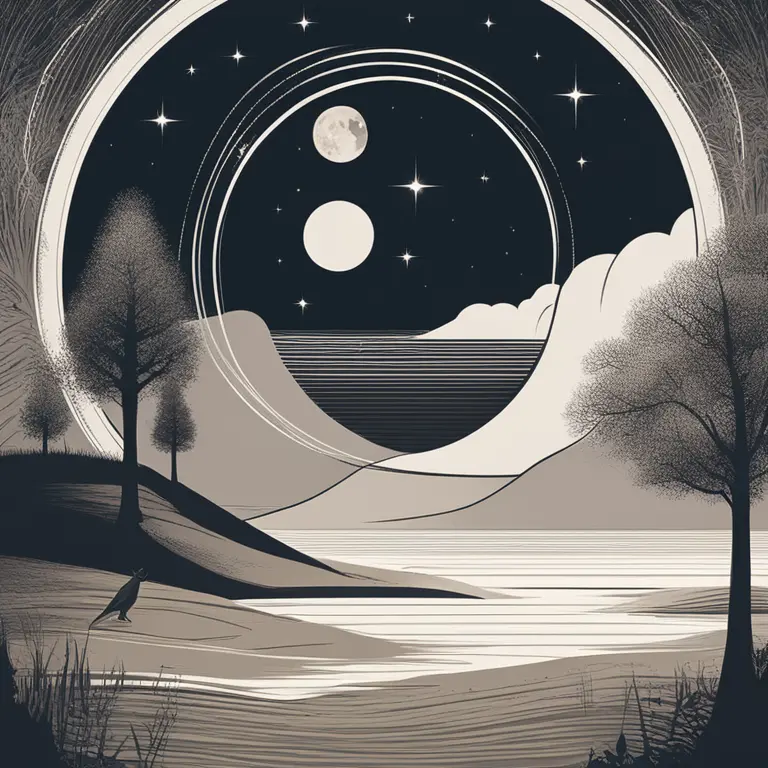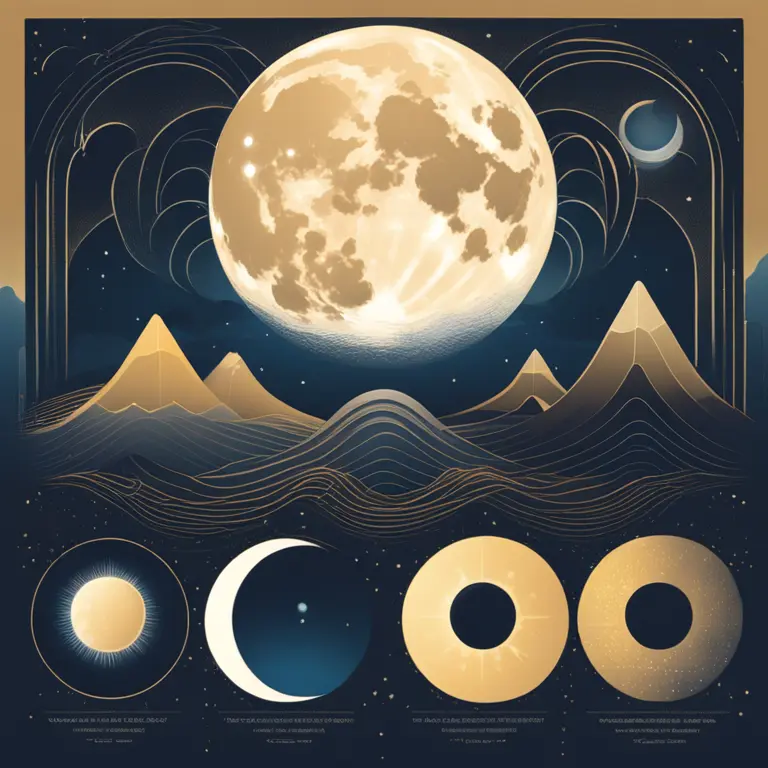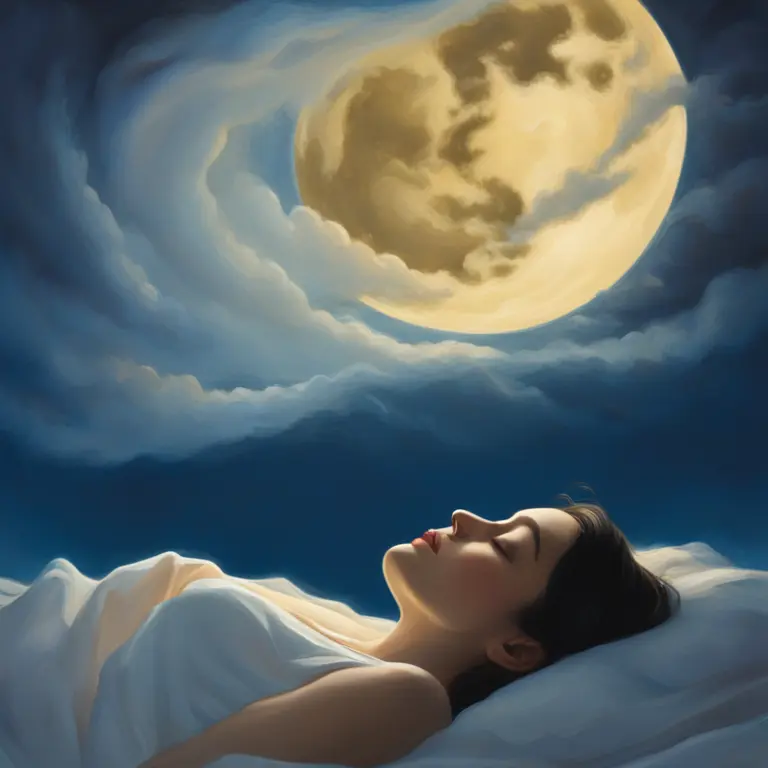
Moon Phases and Sleep Quality
Discover how the moon's phases may impact your sleep and learn to align your rest with the lunar cycle for better sleep quality.
article by Priya Deshmukh
Moon's Mystical Sleep Influence
For centuries, humans have been fascinated by the moon and its potential influence on life here on Earth. The concept that the lunar cycle can impact biological rhythms, including sleep patterns, is not new. This link between the moon and our sleep cycles has significant roots in cultural folklore and has prompted scientific inquiry in recent years. As we grow more inquisitive about the natural world's effects on our wellbeing, it becomes increasingly important to explore the ways celestial bodies may sway our nightly rest.

Tides of Sleep: New Lunar Connections
Recent studies have begun to shine a light on how the moon's phases could influence sleep quality and duration. For instance, during the full moon, anecdotal evidence suggests that people experience difficulties falling asleep and report lower sleep quality. Though conclusive scientific consensus has not been reached, it's proposed that subtle changes in gravitational pull or nocturnal light levels during different lunar phases could play roles in these phenomena. In 2024 and beyond, we might see advancements in understanding these celestial influences on sleep as technology and interest in circadian rhythms grow.

Lunar Lore and Modern Sleep Science
The intersection of sleep science and lunar lore offers a compelling space for investigation. Astrological perspectives suggest that each phase of the moon carries specific energies conducive to various aspects of life, including rest. For example, the new moon is traditionally associated with new beginnings and is thought to foster deeper, more restorative sleep. On the other hand, the full moon's energetic presence is linked to heightened emotions and restlessness. Aligning your sleep with these phases might result in improved sleep wellness.

Aligning Sleep with Lunar Cycles
Incorporating lunar cycles into your sleep hygiene involves tracking the moon's progression and observing how your sleep patterns coincide with each phase. The waxing period, leading up to the full moon, is often associated with building energy, which might make winding down more challenging. Conversely, the waning phase following the full moon could help facilitate unwinding and relaxation. By observing these patterns, individuals can attempt to adjust their evening rituals and sleeping environment to better sync with the lunar cycles.

Practical Tips for Lunar-Synchronized Sleep
For those seeking to harmonize their sleep with the moon, a few practical steps can be taken. Consider dimming the lights as the moon waxes to emulate the increasing moonlight and support the body's natural production of melatonin. During the full moon, keep your sleep space as dark as possible to offset the added brightness. Lastly, the waning moon is an ideal time to prioritize sleep and practice calming activities before bedtime, such as meditation or reading, that support the body's natural inclination to slow down.
Moving Forward with Lunar Sleep Studies
As we progress through 2024 and beyond, the intrigue surrounding lunar impacts on sleep will likely propel forward new research. The complexity of human sleep, intertwined with the ever-changing lunar cycle, offers endless potential for discovery. These explorations could open doors to optimized sleep practices and a deeper understanding of our biological connectiveness to the cosmos. While the moon's influence on our nightly rest continues to be a topic of scientific discussion, it remains an area ripe for exploration among curious minds and sleep enthusiasts alike.
Published: 1/19/2024
Modified: 1/19/2024
More predictions
Come back here soon to learn more about yourself and your future


The Dance of Sun and Moon Phases: Celestial Rhythms
Explore the synchronous bond between the moon phases and the sun's position in astrology, and how they influence our lives.


Moon Phases and Menstrual Cycles: Celestial Rhythms
Discover the fascinating connection between the lunar cycle and women's menstrual cycles, and how moon phases may influence physical and emotional health.


The Nighttime Moon Phase: When It’s Visible to Observers
Learn which moon phase graces the night sky and discover its unique characteristics and impact on astrology and personal biorhythms.